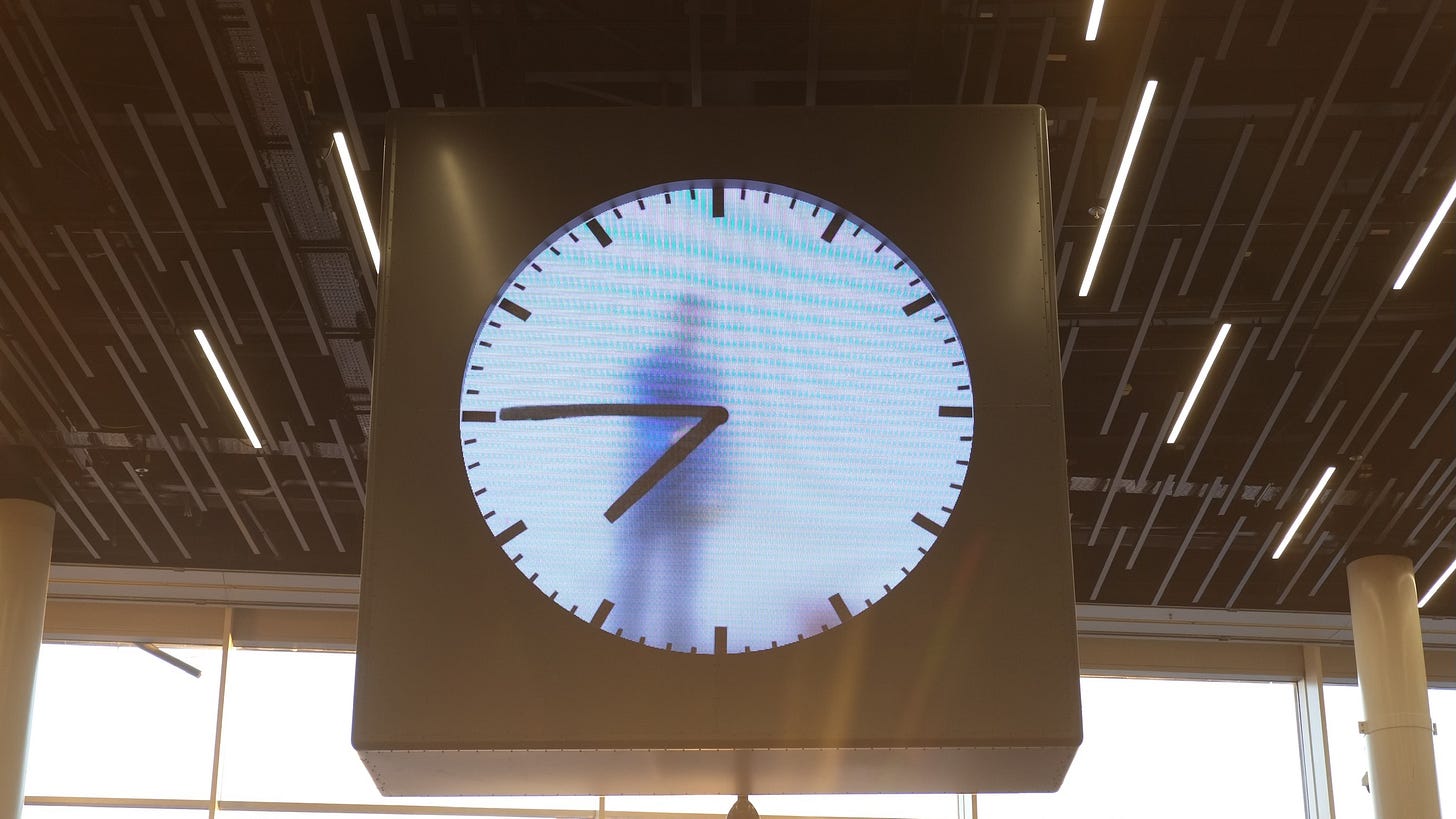I was listening to an interview on the “AI and the Future of Work” podcast with Clockwise CEO Matt Martin, and he said something that mirror something I’ve been thinking about in my 4-day week work:
“While time feels very individualistic… inside modern organizations of any sufficient size, time really has become a shared asset.”
We all experience time individually, and talk about it that way: “we think about it as my time, my calendar, how do I improve my schedule?” Martin notes.
(It strikes me that this is a very modern way of thinking about time: for most of human history, time was shared, and people followed rhythms defined by natural and religious calendars, by the church or ship’s bells, by railroads and factories, etc. Time was synchronized and collective, not individualized.)
He continues:
“30 years ago, if I wanted to meet with you, I would call you up and see what works for you. Whereas now, if I'm working alongside you, I just look at your calendar and take the time. And when you translate any resource from an individual resource to a shared resource, you can often create a tragedy of the commons. And I think that's what we've done with time. Everybody's vying for it, nobody's really managing it collectively, nobody's regulating it, nobody's putting boundaries around it; and so it ends up getting trampled.”
In my work, I talk about the importance of looking for collective ways to improve things that we think of as entirely personal: time management, productivity, and focus. Even our attention has a social dimension: your ability to concentrate depends on shared norms and schedules that inhibit me from interrupting you.
Then, we look for ways to turn this insight into practice. Mainly this a matter of creating new schedules and rules that let everybody create time that they can all use more effectively, but it’s also about starting to shift norms around how we think about time. To put it another way, we look for ways to make time a shared asset that coworkers use and treat as responsibly as they would treat a company’s money, or any other critical resource.
And in today’s knowledge-intensive organizations (which is basically all organizations, whether we recognize it or not), attention is at least as valuable as money. Organizations can spend (or waste) it, but they can also create it, by recognizing that time is a shared asset.



